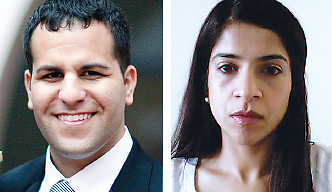Helping Residents Navigate Their C-L Experience
Abstract

As we reflect on our time supervising junior residents and medical students on our hospital’s consultation-liaison (C-L) psychiatry service, we have developed a profound appreciation for the challenges of working in the space in which psychiatry and the rest of medicine intersect. As consulting psychiatrists on a busy medical service, we are asked to provide treatment recommendations that may include assessing a patient’s capacity to make life-and-death decisions such as refusing medical interventions.
Our role is also to serve as advocates for mentally ill patients while educating the medical staff on critical issues of transference and countertransference that can influence both the care of the patient and the morale of the medical team. Younger trainees often feel less than adequately prepared to deal with the complex and mentally demanding nature of the rotation, which may lead to myriad emotions, including fear, anger, anxiety, sadness, and guilt. In this column we outline some of these potential difficulties and offer recommendations that we hope will help optimize the learning environment.
When medical teams ask a psychiatrist to evaluate a patient, it can be difficult for the consulting psychiatrist to extract a specific question from the medical team. Often the medical team will ask broad questions, and it is up to the psychiatrist to distill the specific question and concern that needs to be addressed. Clarifying the question requires skill, experience, a high level of distress tolerance, and reflective functioning on the part of the psychiatrist. Supervisors can model effective ways of engaging with the medical team to better facilitate this process.
Psychiatry residents frequently hear the phrase “medically stable” during their C-L rotation. The concept of medical stability can be complex, especially if the plan is to transfer the patient to a psychiatric floor. The medical stability of a patient depends on many contextual factors including the potential for developing an acute medical emergency and the ability of mental health care providers to treat the patient on an inpatient unit. Communicating these factors to the medical team may be met with resistance because they have their own internal and external forces that guide the determination of how stable a patient is for transfer. Moreover, the medical team may have preconceived ideas about the ability of psychiatrists to manage a certain level of medical acuity, without appreciating the unique risks of inpatient psychiatric care.
The frustration experienced by the medical team can often translate into disparaging statements directed to psychiatric trainees such as “aren’t you a doctor?” Supervisors can play a vital role in helping the trainee understand the dynamics at play. They can, for example, use role playing to help teach trainees on the C-L service the art of diplomacy in dealing with other physicians while being respectful and assertive. The supervisor can help reframe potentially negative interactions as learning exercises that can help foster competency in professionalism, conflict resolution, collaborative care, and teaching.
Assessing safety issues and the patient’s risk of harm to self or others can be complicated for trainees. The space needs to be created for them to discuss concerns openly with supervisors, especially when they feel conflicted about decisions affecting patient care. Supervisors should carve out weekly time for trainees to be able to process their own thoughts, feelings, and emotions about the C-L clinical experience.
Trainees should also learn how to advocate for patients and become a source of support, education, and understanding. Embracing a patient’s autonomy also includes eliciting his or her own wishes, values, morals, and spiritual or religious beliefs. Some of the decisions our patients choose to make can be strikingly at odds with our own feelings about what is best for the patient. Our goal should be to move away from any type of conversation with the patient that appears paternalistic or authoritarian. In some cases, trainees should encourage patients to bring in their spouses, partners, and other loved ones for family sessions, especially when there is conflict within the family stemming from patient choices and/or the symptoms of mental illness. Families can also be an important resource for a psychiatrist who is trying to establish the baseline cognitive status of a patient.
A wonderful book that we recommend for both trainees and practicing psychiatrists is Manual of Psychiatric Care for the Medically Ill by Antoinette Ambrosino Wyszynski and Bernard Wyszynski, which is available from American Psychiatric Publishing (http://www.appi.org/SearchCenter/Pages/SearchDetail.aspx?ItemId=62118).
Finally, supervisors should emphasize the importance of good self-care with practices such as mindfulness. We have found that introducing trainees to basic mindfulness exercises can provide the catalyst for more meaningful engagement and therapeutic communication with other health care providers and patients. ■



